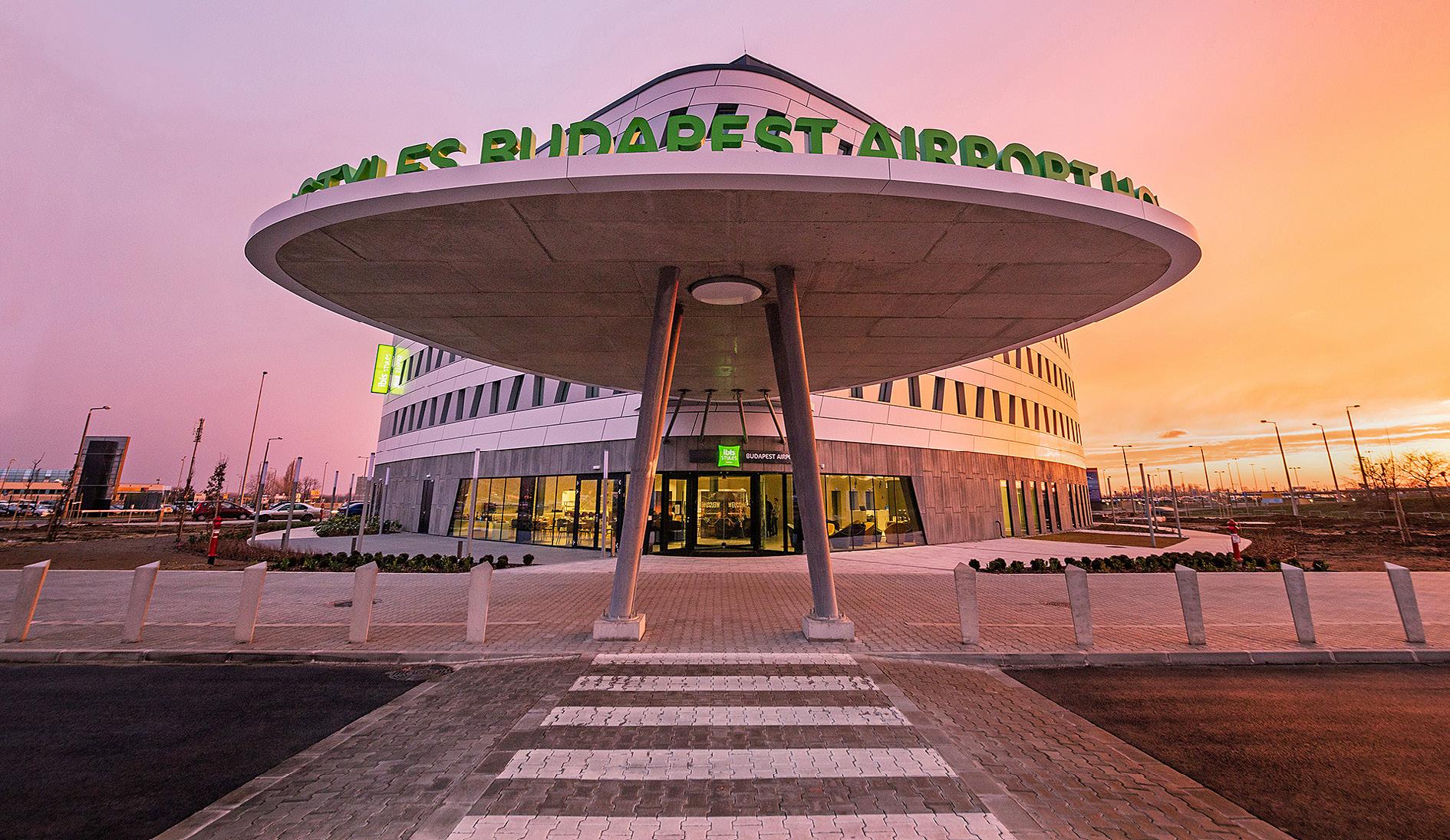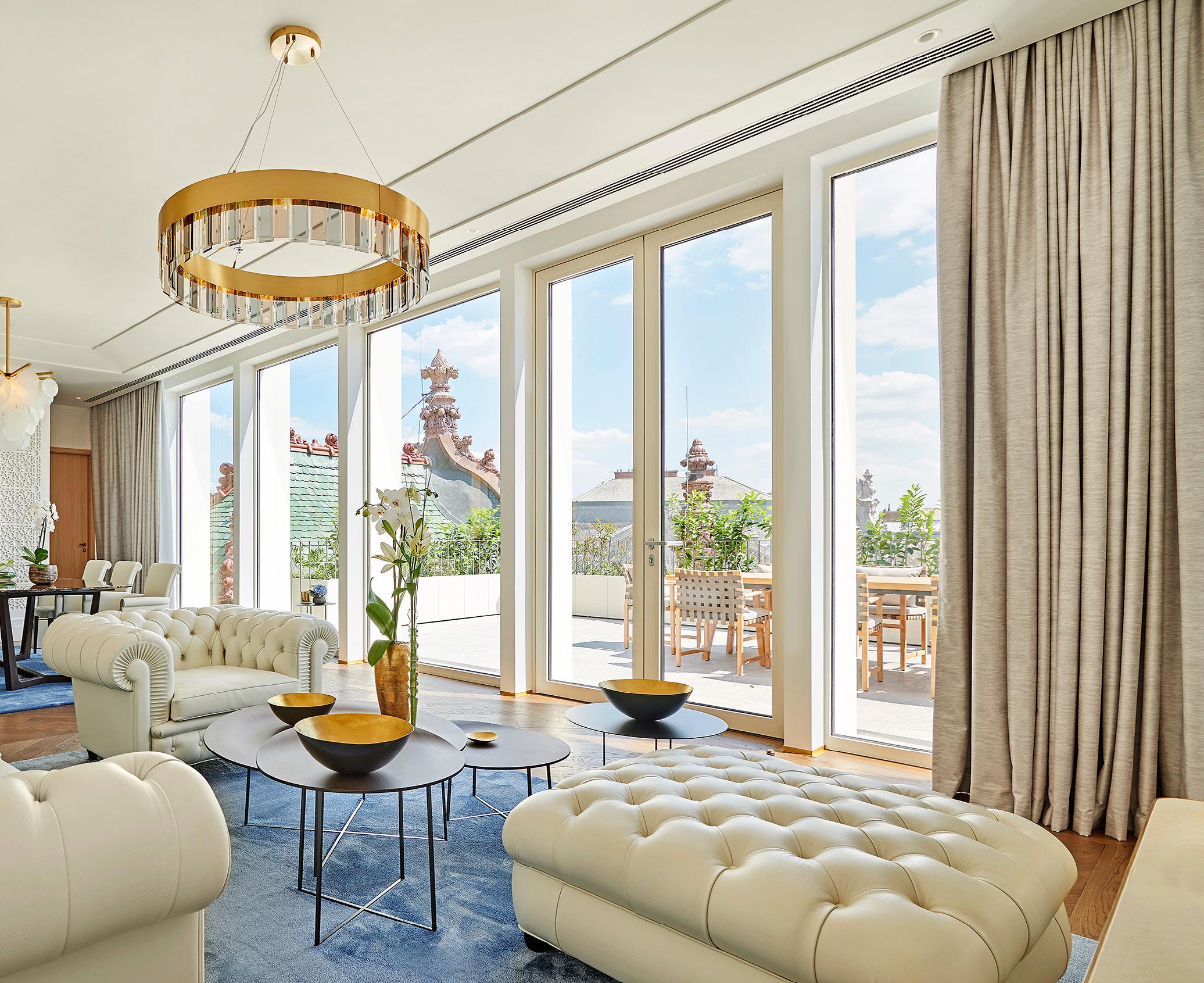
7 minute read
How and When Will Hotel Sector Bounce Back From COVID?
Developers, investors and hotel operators have seen strong potential for hotel development in recent years against a backdrop of rising tourism and demand indicators. However, the hotel and the hospitality sector has been one of the most severely hit by the coronavirus pandemic, with the impact of the crisis on tourism and international travel.
By Gary J. Morrell
Prior to the appearance of COVID-19, the sector had begun to attract developers and investors from the more traditional commercial property sectors seeking long-term partnerships with hotel operators for the day-to-day operation of the hotels. A number of projects at various stages of preparation and construction are in the pipeline in Budapest and the wider Hungary, although pipelines are difficult to estimate in the current environment.
Heading into 2020, Hungary had good expectations of exceeding the 16 million in airport passenger traffic that visited the county in 2019, the type of figure that has helped hotel become a mainstream development and investment market sector. When the sector might recover from a development and investment perspective remains to be seen, although the importance of the industry to national income cannot be underestimated. Further, hotel development has contributed to the redevelopment of the infrastructure and enhanced the atmosphere of Budapest and other areas of Hungary.
Hilton Garden Inn interior.
Airport hotel by Wing.

“The global economy is under enormous strain as it deals with the fallout from the COVID-19 virus,” comments the hotel and hospitality consultancy, Horwath HTL, which bills itself as the world’s largest and most experienced hospitality consulting brand, with 47 offices around the globe.
“All industries and all sectors are affected, but none more than hospitality. By its very nature the hospitality business is entirely dependent on the movement of people and a fall-off in demand of this magnitude has never been experienced before,” it adds.
OCCUPANCY RATE
Before the onset of the international coronavirus emergency, CBRE had monitored a pipeline of 3,750 hotel rooms across 32 schemes in Hungary, 85% of which were in Budapest. The capital had an overall hotel occupancy rate of 85% for the second half of 2019, second only to Prague in the CEE region according to Hungary’s Central Statistical Office (KSH). With the very different skills required for hotel operation from, for example, the office sector, developers tend to operate a complex in partnership with a specialized hotel operator; an estimated HUF 260 million was invested into the sector last year, and it is now recognized as a mainstream investment asset class.
“The majority of hotels are closed. However, investors are still looking for opportunities, especially when it comes to distressed assets,” Borivoj Vokrinek, head of hospitality research for Europe, Middle East and Africa at Cushman & Wakefield, points out.
After years of relatively limited supply, the total volume of new hotel deliveries finally took off in the second half of 2019 as CBRE registered 590 modern rooms delivered. In total, 1,120 rooms were handed over across Hungary, three times higher than the preceding year.
In addition, a number of projects shifted into 2020 and were scheduled to be delivered this year, before the onset of the coronavirus emergency.
“Budapest, and particularly the central districts on the Pest side, still form the most desired location for developers to proceed, predominantly in the three- and four-star category, with a handful of premium five-star hotels,” says CBRE.
ATTRACTING THE LOCALS
As the lockdown comes to an end and hospitality outlets open up, some analysts see hotels that could attract domestic traffic as being in a more positive position in the shorter term, and some hotel owners are marketing their hotels in this way.
Hotels that rely on international air travel will have to look to a longerterm recovery in tourism and argue that the government should undertake policies that facilitate this in recognition of the importance of the industry to the economy and the development of the country.
The other major issues facing the industry will be health measures that will have to be introduced before businesses can return to some semblance of normality in the view of analysts.
“What is positive about this crisis is that, for the first-time, travel and tourism has been named as an industry that is vital in any functioning economy,” adds Horwath HTL.
Due to the complexed development process and labor issues, hotel delivery dates have long been very difficult to estimate and completions have been slipping back. Commercial property developers such as Wing and Redwood Real Estate Holding have ongoing hotel projects, while DVM is working on the construction of a hotel project for a regional hotel developer. Major hotel brands such as Hilton, Hyatt, Marriott and Accor Hotels all have planned hotel projects in Hungary.
Almost all Budapest hotel projects are located in Districts V, VI, VII and VIII. JLL has traced a pipeline of eight hotel projects under construction in District V that were scheduled to deliver by 2022, the biggest of which is the five-star, 250 room Marriott Autograph Collection. The largest project outside the capital is the 123 room Hunguest Hotel Sóstó in Nyíregyháza, 230 km east of the capital, and 55 km north of Debrecen, and the nearest international airport.
HIGH-END PROJECT
In a high-end project in the historic center of the Hungarian capital, the local Accent Hotel Management has delivered the four-to-five-star, 214- room Hilton Garden Inn Budapest Center in District VI. Accent Hotel Management has agreed a franchise agreement with Hilton Hotels for the Lázár utca complex, which is located close to the Hungarian State Opera and Andrássy út. In a renovation/regeneration project, the Hungary-based, Jordanianowned hospitality developer, Mellow Mood has opened the long-awaited, 110-guest room and 18 suite Párisi Udvar Hotel in the historic center of Budapest. A franchise agreement has been concluded with Hyatt Unbound Collection.
Another top-end hotel historical reconstruction by the Turkish Özyer Group, Matild Palace, a palatial fin de siècle building, is scheduled to deliver the first 130-room and suite Marriott The Luxury Collection branded hotel in Budapest on the gateway to Erzsébet híd.
In the mid-range segment of the hotel market, the German Deutsche Hospitality in conjunction with the B&L Group is developing the 300-room and six conference room, three-star InterCity Hotel Budapest, its first CEE InterCity Hotel, at Keleti Railway Station. The company has a policy of developing the brand at what it sees as key train stations and airport locations; the Budapest project is scheduled to be completed this year. A contract with DVM Group has been agreed for the design and construction management of the development.
Wing, which is active in all commercial development markets, has agreed a forward development contract to build a hotel in Boráros tér in District IX for the French B&B Hotels chain. The project is a conversion of a former office building with a view overlooking the Danube. Wing delivered the 145- room Ibis Styles Budapest Airport Hotel in 2017, which is the only hotel at the Ferenc Liszt International Airport. (The property has remained open during the crisis due to its special position as the complex has been used by cargo aircrew under isolation regulations imposed due to the COVID-19 virus emergency.)
NEW IDEAS NEEDED
Hotel developers see the necessity for the development of new or

innovative concepts. The Hungarian Redwood Real Estate Holding has agreed a management contract with Hard Rock International for the operation of the 140-key (including suites) Hard Rock Hotel Budapest in Nagymező utca in District VI, due to complete later in the year.
This four-to-five-star “life-style” hotel and Hard Rock Café, located in a party hub in Budapest, reflects the growing sophistication of the hotel market and the need for different models of hotel development. The hotel and leisure complex, designed by the Hungarian
Párisi Udvar Hotel Budapest, Residence Living Room.

Studio 100, will include a restaurant with a seating capacity of up to 120.
“Hotel operation is a completely different skill to office operation and therefore we are developing the project and, upon completion, it will be operated by Hard Rock International. Tourism is the biggest hit sector, no doubt. A recovery will depend on flight capacities. Trust and safety come first,” comments Bálint Erdei, founder & CEO of Redwood Real Estate Holding.
The hotel market is increasingly attracting investors who were not traditionally involved in hotel acquisitions. One such example is the Hungarian-American owned investment manager Indotek, which has purchased the 230-room Art Nouveau Gellért Hotel overlooking the Danube.
The fund plans to refurbish the landmark building and upgrade the hotel to five-star status, for which it is looking for an international luxury branded hotel operator. In another deal, a K+K Hotel was purchased as part of a European portfolio acquisition by a joint venture between Event hotels and InterGlobe Enterprises.
“The focus for the hotel sector has been on finding a temporary solution to navigate this process, rather than drastic and irreversible measures and hoping for a recovery in the second half of the year,” concludes Cushman & Wakefield’s Vokrinek. “There is no doubt that government support across Europe will be critical for hotels to be able to overcome this crisis.” The questions remain as to when the hotel and hospitality sector will make a comeback and under what conditions.










